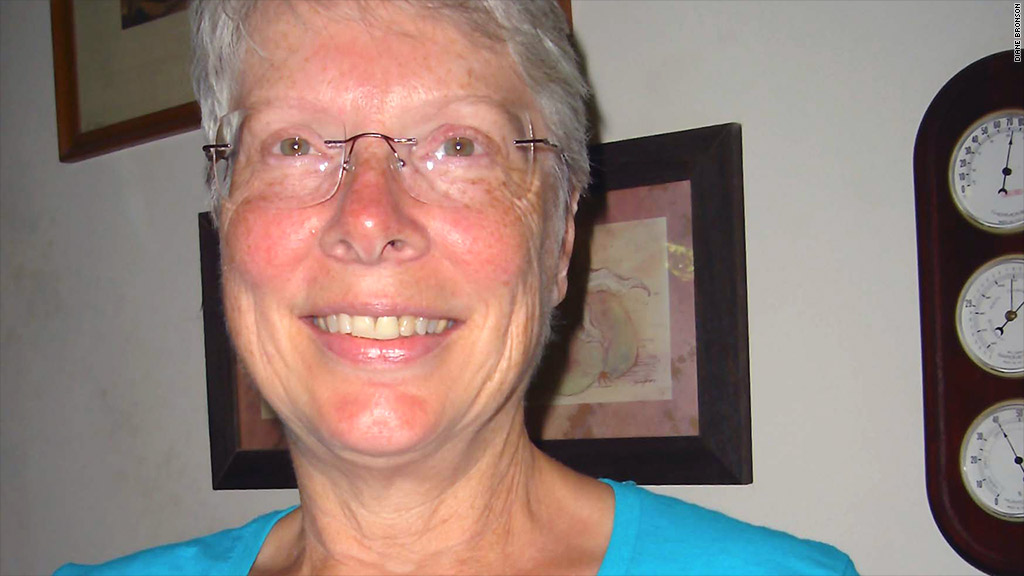
The market was swooning for much of 2008, and Diane Bronson made exactly the wrong call.
At least, she thought it was a bad move. She yanked all her money from the stock market and put it in cash.
"I decided to sell in a panic," she says. "That was in January 2008 before everything went to hell."
It went against every investment instinct the former librarian had developed over the years. She was a "buy and hold" kind of investor who prided herself on patience and a long-term focus. For decades, she put her money into growth-oriented mutual funds.
But her hunch paid off.
She avoided the worst of the downturn when Lehman Brothers fell in September 2008. She later got back into the market and has since enjoyed one heck of a bull run the past five years. Her portfolio now provides a quarter of her retirement income and allowed her to retire early in 2012.
"All my life, I've been a 100% stock-invested, buy-and-hold kinda gal, but after watching my life savings drop by nearly half from 2000 to 2002 and take another three years to get back to their 1999 level, I just wasn't able to see that close to a 500-point drop without my stomach dropping as well," she wrote in an e-mail, referring to the wobbles in the market in January 2008.
Related: What's a mutual fund?
Before she had always stayed put, remaining in the market even after the dot-com crash in 2000. In fact, her portfolio only recovered from that downturn in 2005, so it was scary for her to abandon everything in a gamble to save her funds.
She ended up parking her savings in money market funds, which were experiencing their own turbulence, though not quite as bad as the stock market.
"I didn't have another five years to waste getting nothing out of my money," she said
Bronson never considered herself much of an investor. In the early days of her career, she had little to play around with.
Then she began to take her retirement and savings funds more seriously. A librarian for more than two decades, it figures that her introduction to the world of investing started with a reference book on mutual funds.
She goes through four or five books per week, and many of them have been investing books over the years. She's forgotten the name of that first one, but one favorite, is the value investing classic "A Random Walk Down Wall Street."
"Tell everyone to go to their 332s," she said, referencing the section of the Dewey Decimal System covering financial economics.
She still uses her local library's resources to better understand the markets, including taking advantage of a MorningStar subscription available there. She also checks the market daily, reads a lot and looks over research notes from Vanguard, which operates the funds she uses.
Related: Tell CNNMoney about your investing experience
Mutual funds are still her preferred form of investing, because she doesn't like trying to time the market. She dabbled a bit early on by trying to pick individual stocks, but her returns were underwhelming.
"Bulls make money and bears make money, but pigs get slaughtered," she said. "I was a pig, and I got slaughtered."
Since the financial crisis, it's been a bit of an adjustment for her to diversify. Sometimes she compares investing notes with her father, and she gets envious that he's kept all his money in cash and stocks.
"I would never buy bonds before, and I never understood why people make any money in bonds," she said. But now she has a quarter of her money in bonds. She's also moved into larger-cap stocks in a quest for stability.
She counts herself fortunate that her gambit allowed her to retire two years early. Her investments have provided a nice supplement to her pension. Had she not had that safety net, she would have been a lot more fearful during the downturn.
She's not as worried about timing the top of the market this time. All she wants is peace, calm and steady returns to carry her through her golden years.
"I don't know what I'll do the next time the market seriously dives," she said. "I can't expect to be this lucky twice in a lifetime."


